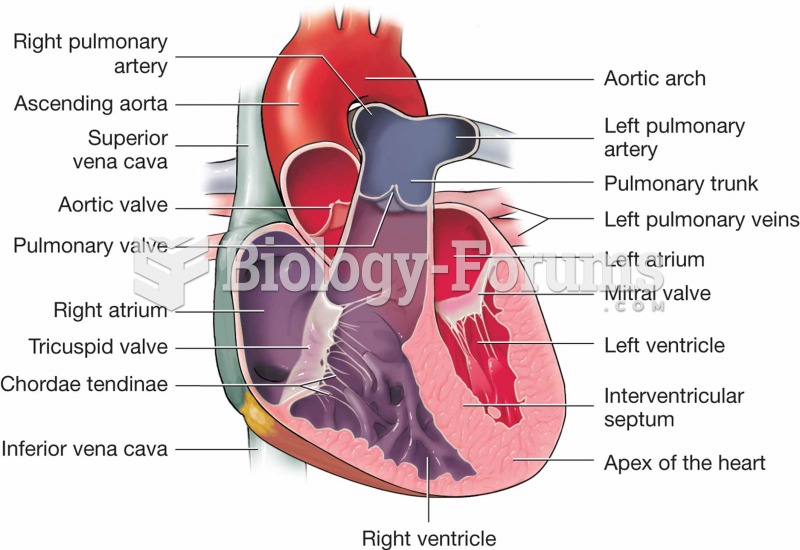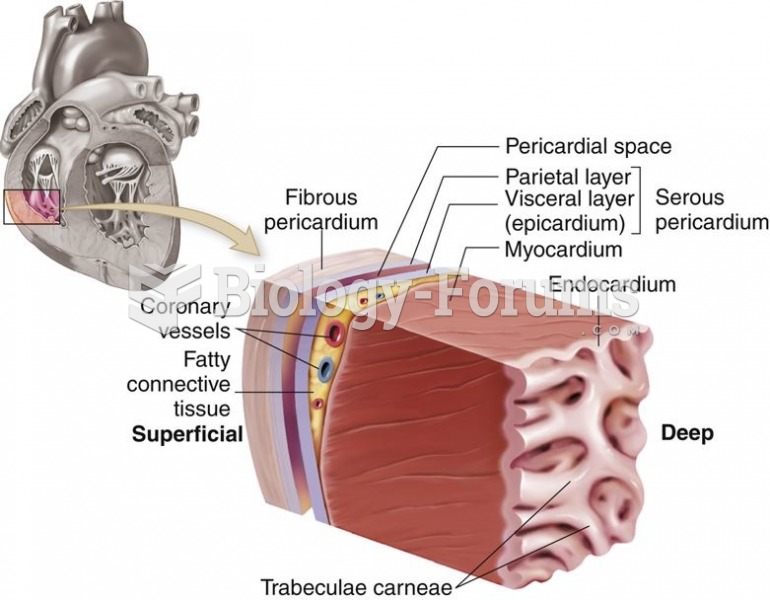|
|
|
Hippocrates noted that blood separates into four differently colored liquids when removed from the body and examined: a pure red liquid mixed with white liquid material with a yellow-colored froth at the top and a black substance that settles underneath; he named these the four humors (for blood, phlegm, yellow bile, and black bile).
On average, someone in the United States has a stroke about every 40 seconds. This is about 795,000 people per year.
Certain chemicals, after ingestion, can be converted by the body into cyanide. Most of these chemicals have been removed from the market, but some old nail polish remover, solvents, and plastics manufacturing solutions can contain these substances.
About 100 new prescription or over-the-counter drugs come into the U.S. market every year.
There are approximately 3 million unintended pregnancies in the United States each year.







